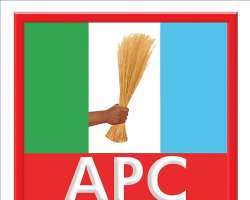2015: Is APC A Threat To PDP?

With the successful registration of the All Progressives Congress (APC) by the Independent National Electoral Commission (INEC) on the 31st of July 2013, there was no doubt that a new of vista of political discuss as we are presently witnessing was opened in the country! Though, the tortuous and tumultuous move by the promoters of the new party was not an easy one at all, looking at some of the encumbrances they had faced and have been able to overcome from the onset!
Hence, commendation must go to the leaders of the defunct Action Congress of Nigeria (ACN), the Congress for Progressive Change (CPC), the All Nigeria Peoples Party (ANPP) and some factions of the All Progressive Grand Alliance (APGA) for closing ranks among themselves at that stage to form the All Progressives Congress (APC). But, the question is how long is the union going to last, looking at how it has become an all comer's affairs?
Before now, many political analyst and commentators had foreclosed the possibility of any workable political alliance in the country, especially when looking at how previous attempts have failed to yield the desired results. Understanding this reality, the leaders of the new party made it abundantly clear from the onset that, since political alliances have failed in the past, what they needed at that moment was the merging of existing political parties in the country, which was a novel idea. A novel idea in the sense that what we have had in the past was alliances which never worked.
However, prelude to the conduct of the 2011 Presidential Election in the country, several meetings were held between the leaders of the defunct CPC and ACN on how to merge ahead of the general election. During that period, there were suggestions on the new name the party would bear. Some even suggested that it should bear Action Congress for Progressive Change (ACPC), but, along the line, what some cynics would call 'The Nigerian factor ' creped in and then scuttled the whole idea! For example, there was this debate over who will fly the party's flag.
While the then Action Congress of Nigeria was banking on its success in the past elections and the fact that they control some states and have produced members in the States and the National Assemblies, they derided the Congress for Progressive Change (CPC) which was formed and registered lately, saying the new party was still an untested and unproved one. But then, the CPC negotiators were capitalizing on the mass appeal their party enjoyed in the press and among Nigerians who had little or no electoral value! Hence, the merger talks between the two parties' broke down and they went in the election separately. After the elections, the reality downed on both; while the ACN captured the entire South West Geo-Political zone except Ondo State, the much hyped CPC under-performed as it only laid its cold hand on Nassarawa State.
So, when the discussion on the merging of the political parties was reopened in 2012, many Nigerian analysts and commentators never took the promoters of such idea serious, but, while trying to effuse confidence on the minds of skeptical Nigerians about the workability of the new merger's talks, the former governor of Kano State, Mallam Ibrahim Shekarau explained to Nigerians on why the previous merger's talks failed. He said it was simply because; the participating parties had conducted their conventions and primary elections, which had produced their respective presidential candidates.
So, it was not possible for them to abandon their various flag bearers some weeks to the election. Another question I must ask is, looking at the APC's modus operandi, what can we say is their guiding philosophy and motivation? Are they temporarily united for the sole aim of dislodging the ruling People's Democratic Party or are they united for the sake of our democracy and strengthening its flabby institutions which some of them are guilty of weakening?
Whatever intention is behind the sudden unity among them, the fact remains that PDP has over the years built and oiled a formidable structure across the length and breadth of the country, so undermining this reality for media propaganda is like a soldier going to war under-estimating his enemy instead of over-estimating! PDP has structures in all the 8,812 Electoral Wards, 774 Local Government Councils, 360 Federal Constituencies, 109 Senatorial Districts and the 36 states plus the Federal Capital Territory in Nigeria. Apart from this, most voters are familiar with the umbrella logo of the PDP on the ballot papers; so this is not something anybody can substitute with propaganda!
Similarly, even if APC should spread its tentacles across the country, it will still take some voters time to be acclimatized to their logos and symbols because there is high rate of illiteracy in the country and those in the urban areas alone cannot make anybody president, but, the combined votes of the urban and the rural dwellers respectively. So, with this analysis, I think APC does not pose any threat to PDP and President Good Luck Jonathan in the 2015 Presidential Election coming up soon!
Comrade Edwin Uhara, an Activist and a Public Affairs Commentator.
He is also the National President of Young Nigerians for Change,
and writes from No. 9 Imgbi Road, Yenagoa, Bayelsa State.
He can be reached on 07065862479 or 08076134054
[email protected]
